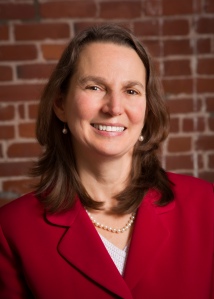

TytoCare hopes to take telehealth to the next level by providing a solution that allows clinicians to conduct remote examinations. Patients (or caregivers) will use a TytoCare device to conduct an exam that can be interpreted by a physician over a cloud-based platform with video conferencing.
The company took a step forward recently by obtaining FDA clearance for its digital stethoscope. The approach looks pretty cool, but clearly it will be a challenge to get the devices out to patients ahead of need and to do so cost effectively.
CEO & Co-Founder Dedi Gilad answered my questions via email:
1. What was the inspiration for Tyto?
I founded TytoCare along with Ofer Tzadik, another lifelong leader in Healthcare IT, in 2012. The story is similar to that experienced by most families when at a young age, my daughter suffered from a series of earaches requiring constant medical treatment. With two working parents, it became increasingly difficult to travel in and out of the local physician’s office on a regular basis. The experience was not easy for my daughter either, waiting for hours in the crowded doctor’s office in considerable pain and discomfort.
After consulting with my pediatrician, I recognized the strong need for change in the way primary care is delivered today. I collaborated with Ofer Tzadik to design a new medical experience, one that would not only mutually benefit both the doctor and the patient, but also serve to strengthen this vital relationship. The result of this endeavor is TytoCare, a company prepared to lower the load and cost of U.S. healthcare services, improve accessibility to healthcare services even from the comfort of home, and reshape day-to-day healthcare as we know it.
2. Why a dedicated device instead of using a tool everyone already has, i.e., a smartphone?
TytoCare’s examination tools and complete telehealth platform work with a smartphone or tablet and include a stethoscope, otoscope, tongue depressor, camera, and thermometer. While a smartphone can only offer video and audio technology, Tyto enables the patient to conduct actual exams of the heart, lungs, heart rate, temperature, throat, skin and ears. This cannot be done with video alone and more importantly, it requires an interface and technological infrastructure that simply wouldn’t be cost effective in a smartphone.
3. How will distribution to end users work? It seems like logistics will be difficult. For example, do you expect everyone to have a device in place before they need it?
To begin, distribution will start with health institutions though a full consumer product is coming in 2017. We expect that consumers will see the value in being able to perform live, remote medical examinations at home, in place of rushing back and forth to the doctor’s office.
4. What is the cost of the home and pro solutions?
TytoPro will cost $999.00 plus a monthly fee based on usage, and TytoHome will cost $299.00.
5. More broadly, what are the overall economics of the solution? Is there a financial return on investment? How do you think about calculating that? Is it more appropriate for certain segments of patients or providers?
Certainly, and our work with leading financial institutions has reinforced the financial ROI.
The incredible benefit of the product is that its applications are endless because it simultaneously empowers doctors and clinicians while unlocking the full benefits of telehealth for patients. TytoHome can be beneficial in many different scenarios – for geographically isolated patients and those who lack easy access to medical facilities; those who are turning to urgent care because they cannot get an appointment in time at their regular establishment; patients with chronic illnesses or other conditions that require monitoring and frequent, tiresome trips to the doctor or hospital; school or traveling nurses; and of course, parents at home with kids.
6. What is the lifecycle for this solution? Do you expect to upgrade the devices over time? Can that be done through software or will it require hardware to be replaced?
We will likely add additional examination capabilities over time, but the majority of upgrades can be made through software updates.
7. What else should readers know?
TytoCare is a complete end-to-end telehealth platform that provides a telehealth experience comparable to in-person visits. It truly fills the missing link in telehealth between the in-office professional and the at-home patient by delivering comprehensive exam results – of the ear, nose, throat, heart, lung, stomach, skin – as part of a complete telehealth visit. The exam data can be delivered to a clinician via “live telehealth exams” or through the “exam and forward” function – sending the exam results on to be examined by the clinician later.
TytoCare can be used anytime, anywhere and by anyone. Patented guidance technology directs and enables anyone to collect the right data so a clinician can make the proper diagnosis. The advanced digital exam tools use clinic-grade technology to capture high resolution images and sounds, allowing for more kinds of remote diagnoses and increased accuracy.
The secure cloud-based platform enables integration with existing HER systems and provides analytics for decision support with health alerts. TytoCare offers HIPAA compliance, and the modular product design also supports open APIs so other examination devices can be integrated within TytoCare.
——-
By healthcare business consultant David E. Williams, president of Health Business Group.

from Health Business Blog https://healthbusinessblog.com/2016/11/03/tytocare-comprehensive-telehealth-exam-platform/
via
A Health Business Blog





